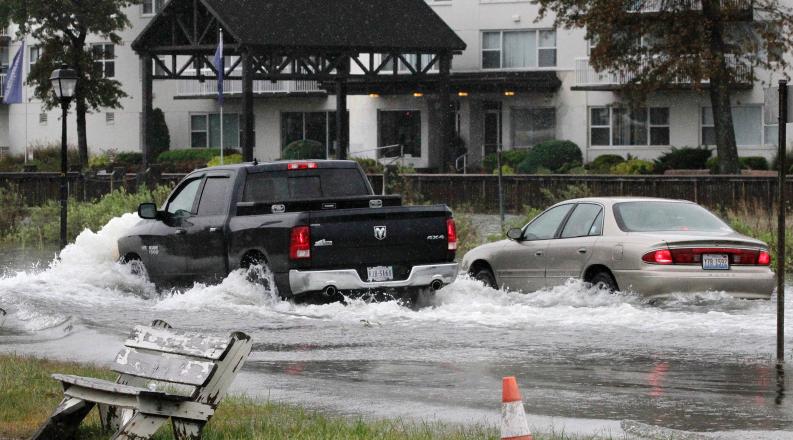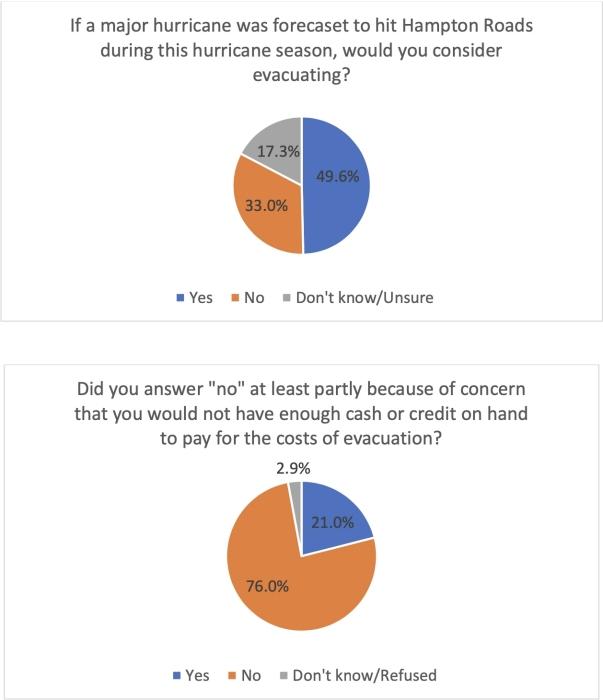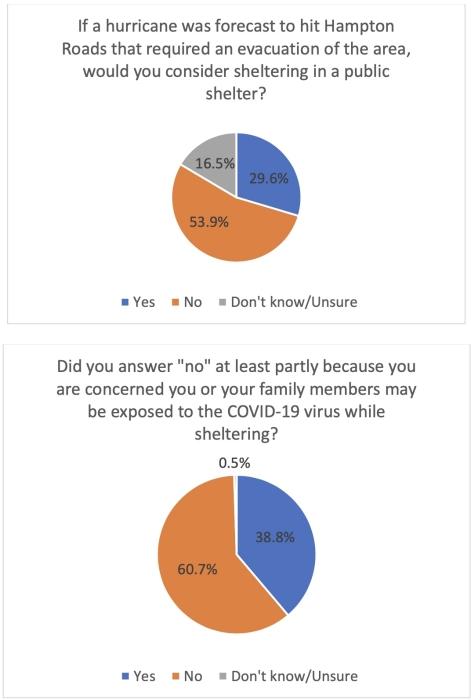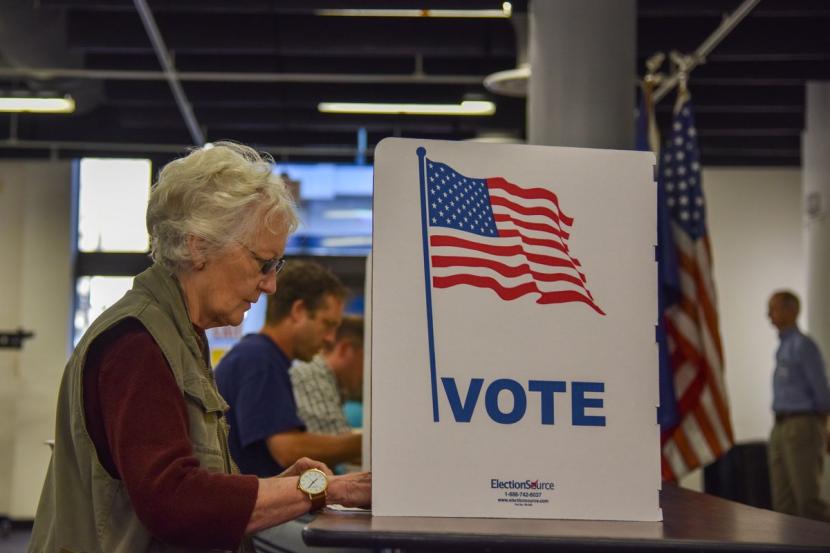Introduction
The Social Science Research Center (SSRC) at Old Dominion University recently completed data collection for the 12th annual Life in Hampton Roads (LIHR) survey. The purpose of the survey is to gain insight into residents' perceptions of the quality of life in Hampton Roads and the COVID-19 pandemic, as well as other topics of local interest such as perceptions of police, employment and other issues. A total of 796 online and telephone surveys were completed between July 12 and Oct. 3, 2021. It is important to note that the methodology this year differs from previous Life in Hampton Roads surveys. For several reasons, including continued concerns about COVID-19 and labor shortages, we conducted both telephone surveys and online panels. This change limits to some degree the ability to compare this year's results with those from previous years or to confidently generalize the results to the Hampton Roads population as a whole. Nonetheless, we note that an increasing number of surveys have moved online in recent years, and that in many instances useful data has been developed despite the challenges of online survey research. For more detailed information on the methodological changes and potential impacts please see the Methodology section in the full report, or please contact the SSRC directly.
The changing climate and rising sea levels touch nearly every aspect of life in Hampton Roads, with some neighborhoods and communities experiencing it more acutely. But, overall, how persistent is recurrent flooding as perceived by Hampton Roads residents? This year's survey finds that nearly 23% of respondents state that recurrent flooding is a problem in their neighborhood, a number broadly consistent with the responses seen since this question was first asked in 2013 when 23% of respondents also indicated that recurrent flooding was a problem in their neighborhood.
In addition, the survey included several questions concerning how residents plan to prepare for and respond to hurricanes during the pandemic, with a special look at the role COVID may play in conditioning sheltering behavior. The 2021 hurricane season at the time of the survey had been relatively quiet for Hampton Roads. However, state and local officials have been cognizant of the potential for COVID-related fears to depress evacuation and sheltering behavior and have taken these considerations into planning assumptions about who may evacuate, seek public shelter and shelter in place.
A decrease in the propensity to either evacuate or seek public shelter is a concern because choosing to weather the storm by remaining in the primary residence may increase exposure to risk, such as wind and tidal surge. The hazards of remaining in coastal areas subject to intense winds and flooding are well-known - yet concerns about exposure to COVID may lead residents to remain in high-risk areas.
The Life in Hampton Roads survey provides insight into how risk perceptions of the population may shape sheltering behavior. For example, when asked if a major hurricane were approaching Hampton Roads, a third of the population would not consider evacuating while about half (49.6%) would consider evacuation. The percentage who would consider evacuation is similar to last year (45%). Further, among those who would not evacuate, 21% stated that concerns about having enough cash or credit on hand to support the cost of evacuation weighed in the decision.
Residents were also asked, if evacuation were required, would they consider going to a public shelter? Nearly 54% said they would not seek a public shelter and, among these, more than 38% cited fears about increasing exposure to COVID. It appears that fears relative to sheltering amid the pandemic may have eased from last year - in 2020, 63% of respondents reported that they would not consider a public shelter with 70% of those citing concerns about COVID-19 exposure.
The Life in Hampton Roads Data report and press releases will be placed on the Social Science Research Center website as they are released (http://www.odu.edu/al/centers/ssrc). Follow-up questions about the 2021 Life in Hampton Roads survey should be addressed to:
Tancy Vandecar-Burdin, Ph.D.
Director
The Social Science Research Center
Old Dominion University
757-683-3802 (office)








